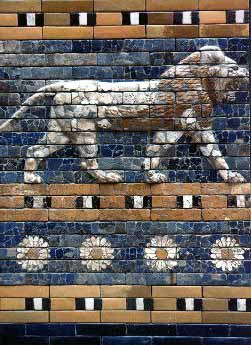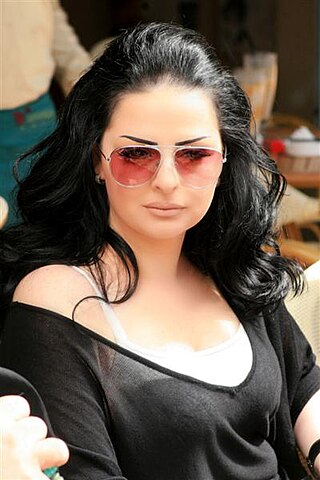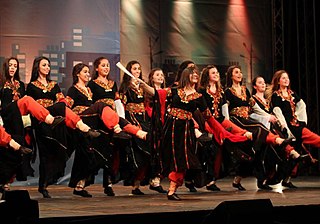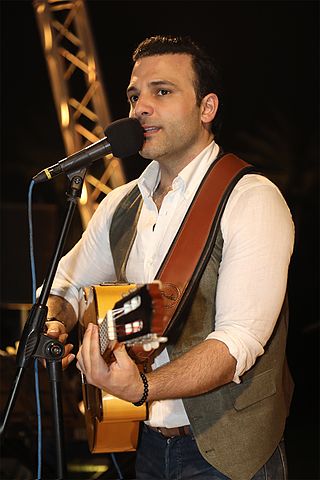
The rich and varied music of Sudan has traditional, rural, northeastern African roots and also shows Arabic, Western or other African influences, especially on the popular urban music from the early 20th century onwards. Since the establishment of big cities like Khartoum as melting pots for people of diverse backgrounds, their cultural heritage and tastes have shaped numerous forms of modern popular music. In the globalized world of today, the creation and consumption of music through satellite TV or on the Internet is a driving force for cultural change in Sudan, popular with local audiences as well as with Sudanese living abroad.

The music of Iraq or Iraqi music,, also known as the music of Mesopotamia, encompasses the music of a number of ethnic groups and musical genres. Ethnically, it includes Mesopotamian Arabic, Assyrian, Kurdish and the music of Turkmen, among others. Apart from the traditional music of these peoples, Iraqi music includes contemporary music styles such as pop, rock, soul and urban contemporary.
The music of Lebanon has a long history. Beirut, the capital city of Lebanon, has long been known, especially in a period immediately following World War II, for its art and intellectualism. Several singers emerged in this period, among the most famous Fairuz, Sabah, Wadih El Safi, Nasri Shamseddine, Melhem Barakat, Majida El Roumi, Ahmad Kaabour, Marcel Khalife, and Ziad Rahbani, who—in addition to being an engaged singer-songwriter and music composer—was also a popular playwright. Lydia Canaan was hailed by the media as the first rock star of the Middle East.

Diana Karazon is a Jordanian singer of Arabic pop, television host, and actress. She won Superstar (2003), the Arabic version of Pop Idol.
The mijwiz is a traditional Middle East musical instrument popular in Syria, Palestine, Lebanon and Jordan. Its name in Arabic means "dual," because of its consisting of two, short, bamboo pipes with reed tips put together, making the mijwiz a double-pipe, single-reed woodwind instrument.
The term double clarinet refers to any of several woodwind instruments consisting of two parallel pipes made of cane, bird bone, or metal, played simultaneously, with a single reed for each. Commonly, there are five or six tone holes in each pipe, or holes in only one pipe while the other acts as a drone, and the reeds are either cut from the body of the instrument or created by inserting smaller, slit tubes into the ends of the pipes. The player typically uses circular breathing.

Dabke is a Levantine folk dance. Dabke combines circle dance and line dancing and is widely performed at weddings and other joyous occasions. The line forms from right to left and the leader of the dabke heads the line, alternating between facing the audience and the other dancers. In English, it can be transcribed as dabka, dabki, dabkeh.

The culture of Jordan is based on Arabic and Islamic elements. Jordan stands at the intersection of the three continents of the ancient world, lending it geographic and population diversity. Notable aspects of the culture include the traditional music and clothing of Jordan and interest in sports. These include football and basketball as well as other sports such as equestrianism, fencing, karate, swimming, and table tennis
Zade Dirani, is a Jordanian American pianist, composer, and UNICEF Goodwill Ambassador for the Middle East and North Africa, of Damascene descent, whose genre blending songs are inspired by Latin, pop, and classical music. He has performed before thousands around the world including Queen Elizabeth and Nelson Mandela.

Ilham al-Madfai is an Iraqi guitarist, singer and composer. al-Madfai's synthesis of Western guitar stylings with traditional Iraqi music has made him a popular performer in his native country and throughout the Middle East. Beginning in 1999, al-Madfai released a string of albums on EMI's label, including his platinum eponymous debut, Ilham al-Madfai (1999), Live at the Hard Rock Cafe (2001), Baghdad (2003) and The Voice of Iraq: The Best of Ilham al-Madfai (2005). In 2009, Al-Madfai released Dishdasha. His Western-inspired compositions led to a nickname; "The Baghdad Beatle".

One Night In Jordan: A Concert For Peace, is a concert DVD and album by Jordanian pianist and composer Zade Dirani filmed at the Roman Amphitheater in Amman, Jordan. The concert features one hundred musicians from 40 nations, including London’s Royal Philharmonic Orchestra, and the London Voices, all performing in the name of peace at one of the world’s largest remaining Roman Amphitheaters in the world. The album was released on February 9, 2010 by ZD Records and distributed by EMI. The concert DVD was released on March 9, 2010 by ZD Records and distributed by EMI. The concert aired on PBS stations in 2010.

JadaL is a Jordanian Arabic Rock band and music project from Amman, Jordan, formed in 2003 by Composer/Music Producer/Guitarist Mahmoud Radaideh, which has held various members over the years.
Mohamed Mustapha Ali Masfaka, better known as Abu Ratib, is a Syrian Nasheed singer of Islamic and Arabic music based on classical Arab poetry.
Abdulfattah Owainat is a Palestinian singer and songwriter best known for his songs on Palestinian Human Rights and their Right of Return as well as various recent uprisings in the Arab World.
Ayah Marar is a Jordanian/Bulgarian singer and songwriter based in the UK. She has been featured as a vocalist or writer on music from British artists including Calvin Harris, DJ Fresh, Camo & Krooked, Bassline Smith and Jack Peñate. She has been referred to as the "Queen of Bass" and the "dubstep queen".

"Thinking About You" is a song by Scottish DJ and record producer Calvin Harris, featuring Jordanian singer Ayah Marar. It was released on 2 August 2013 as the eighth and final single from Harris' third studio album, 18 Months (2012). The song was written by Harris and Marar, who previously worked together on Harris's promotional single, "Let Me Know" (2004) and "Flashback" (2009), the third single from his second studio album, Ready for the Weekend.
Dirani is an Arabic surname and a subtribe of the Dombki Baloch tribe in Pakistan. Notable people with the surname include:
Aziz Maraka, is a Jordanian composer, singer, performer, and producer. Maraka created a music style called "Razz", an Arabic rock-jazz fusion that garnered regional attention. He also released materials as Azis Maraka & Razz, including the album Master Copy.

Hani Mitwasi is a Jordanian singer-musician who is famous for singing in the ‘Spanish-Levant' music genre. After several years of following his passion of the Spanish and Flamenco music, he got his BA in music science at the 'Jordan Academy of Music in 2005, in addition to his 5 years of studying the flamenco guitar.










